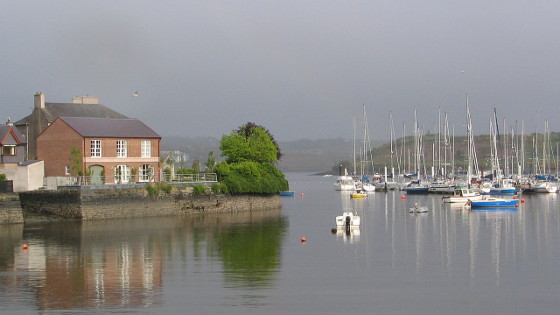Let's go fishing!
Discovering County Cork, you get to one of the most famous places: Kinsale. Just half an hour away from Cork is the fishing and yachting town of Kinsale.
In the past, it was a fishing port, but nowadays, Kinsale is one of the most scenic resorts on Ireland's southwest coast. Visitors can find a lot of cafés and restaurants to suit every taste, and the scenery is quite simply breathtaking. It is also a famous golf destination.
What about you? Would you like to go there on your summer holidays in the future?

At the end of the session, you will have:
- learnt a lot of details about Kinsale.
- learnt how to use the affirmative and negative forms of the present perfect tense.
- started your collaborative Google Site in groups about the city of Cork.
Continue with your posts on Twitter (#taskrecycling and #EDIAcork). Have you ever visited a port? and a yacht port? Take a look at the following website and discover the town of Kinsale. Choose one of the things that you can do in Kinsale and send a tweet using the hashtags of this project.
You can also send them a tweet telling them that you have visited the town virtually: Official Kinsale Twitter. The 'Rubric to assess a Tweet' can help you do a good job in this social network.
Remember that Kinsale must be part of the route at your Google Sites map.
